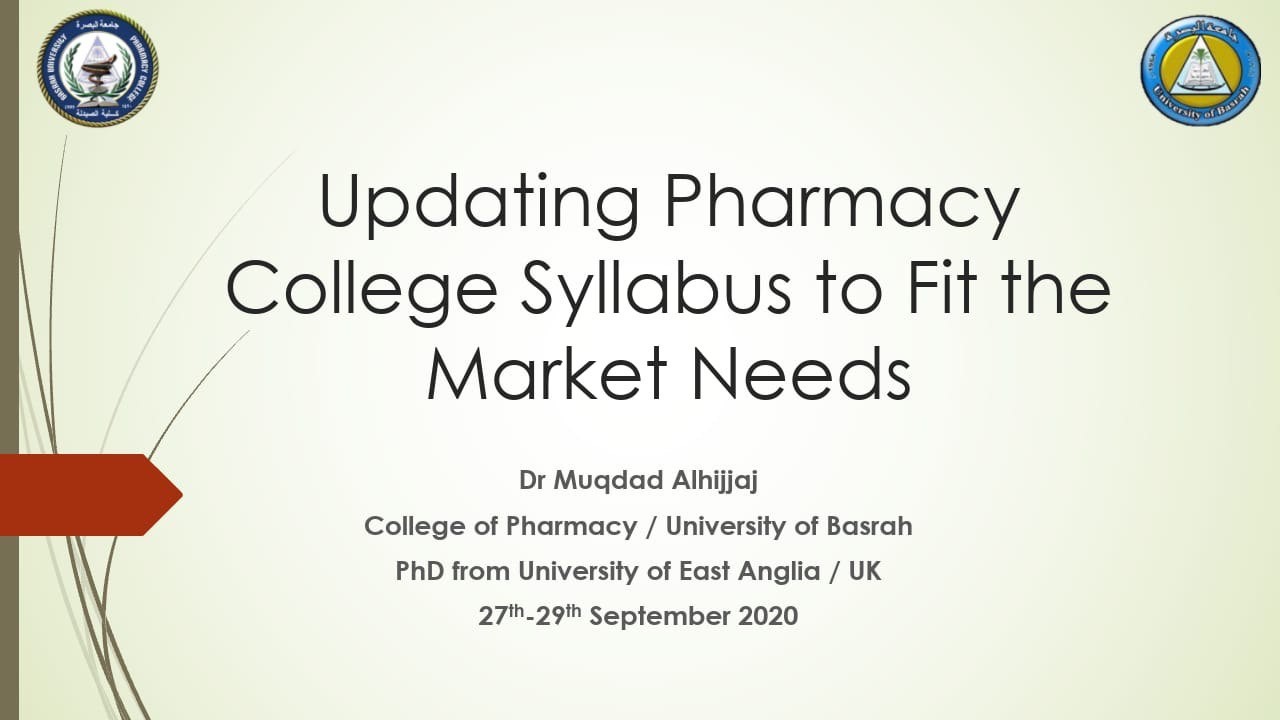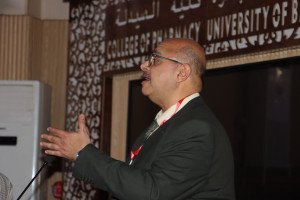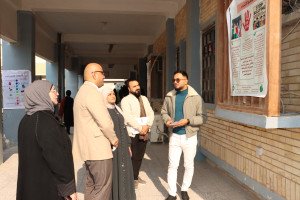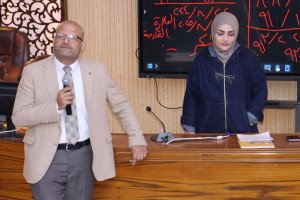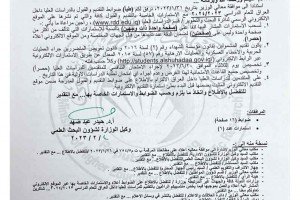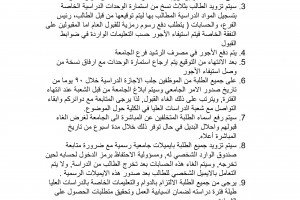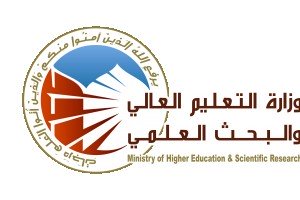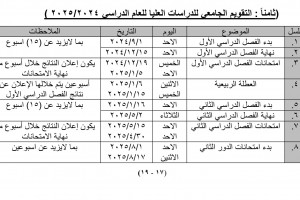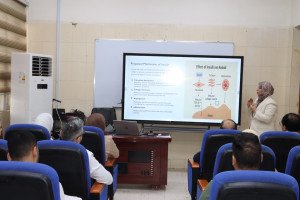
Dr. Miqdad Al-Hajjaj, a lecturer at the College of Pharmacy, participated in the first evaluation conference about an electronic learning that the University of Basrah held with a working paper that included developing the curricula of the College of Pharmacy to meet the needs of the pharmacist labor market, Al-Hajjaj also explained that the current curriculum of the College of Pharmacy does not meet the requirements of the labor market, whether graduate pharmacists in hospitals or in private pharmacies, or even specialists in pharmaceutical media or workers in drug factories. The doctor commented:Hope in developed countries, we see there is a focus on curricula that teach the skills necessary for pharmacists to be effective in their field of work, as for the curriculum followed in our colleges is somewhat old and contains many materials that the pharmacist does not need in his field of work and as a result we need a comprehensive review of the curriculum so that the outputs of the College of Pharmacy are in harmony with the need of the labor market by focusing on the new curriculum about the medical aspects ,patient care, communication with the patient and giving scientific research a prominent role in addition to giving the pharmacist some skills that enable him to communicate, cooperate and deal effectively with the rest of the medical staff, including doctors, dentists, nurses and others, and we must focus on all these axes as we are in order to achieve this goal We have formed a committee that is preparing a study to adopt the (Doctor of Pharmacy) system, which is a system followed in the United States of America and it is a very modern system Folding skills and very broad information closely related to the work of the pharmacist. This study will be developed in the College of Pharmacy at the University of Basrah and will be parallel to the master’s study, as there will be two types of graduate pharmacists : first that studies a bachelor’s degree in pharmacy and the second type will be a Doctor of PharmacyAmerican (PharmD) and will be updated Curricula with these two types of study so that our outputs from the College of Pharmacy are in harmony with the modernity that developed countries have reached in the field of pharmaceutical education.
